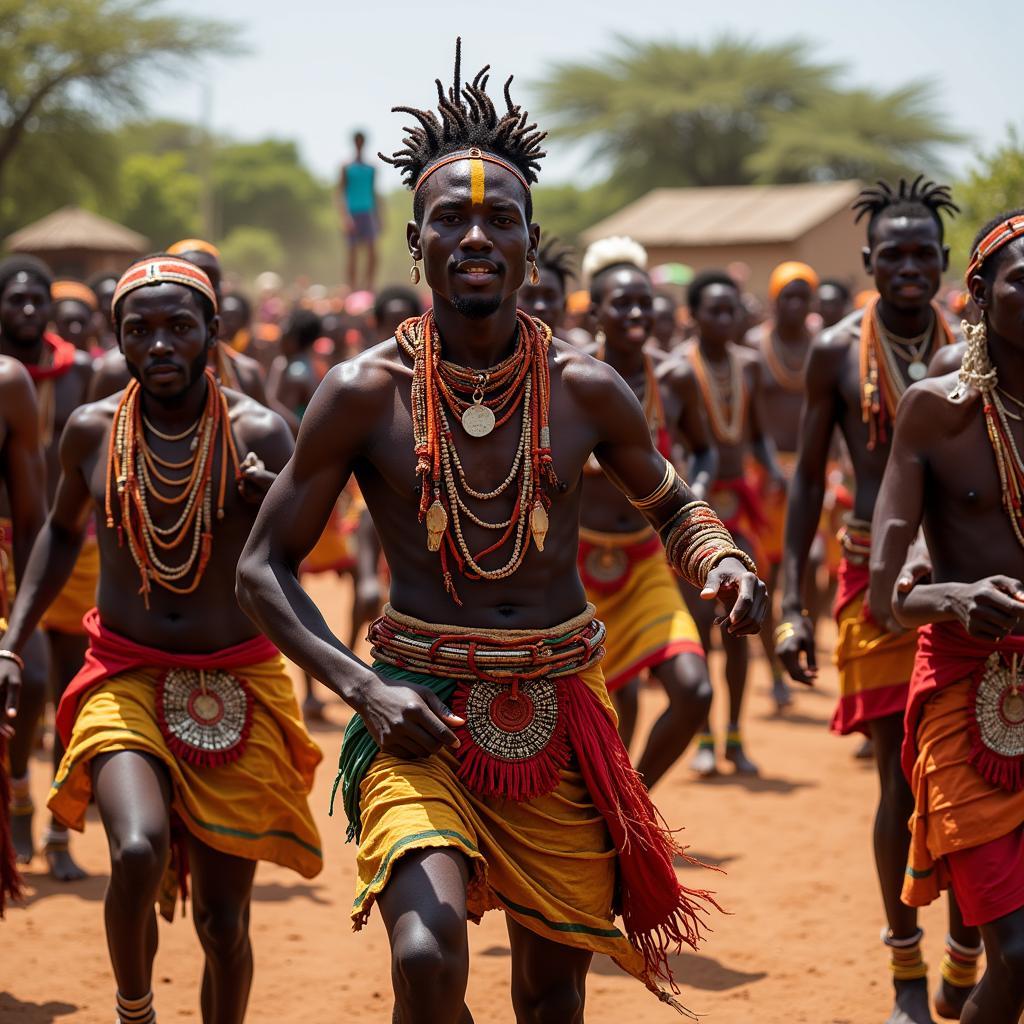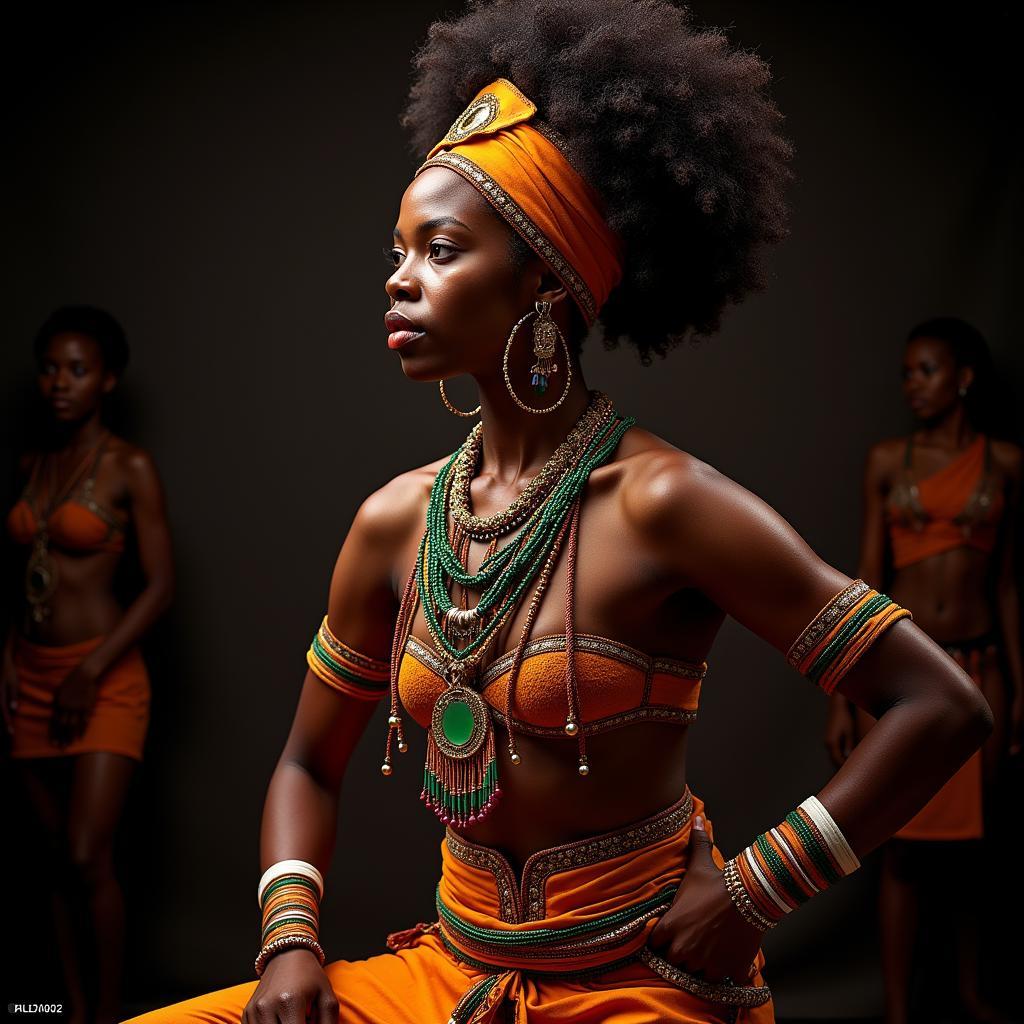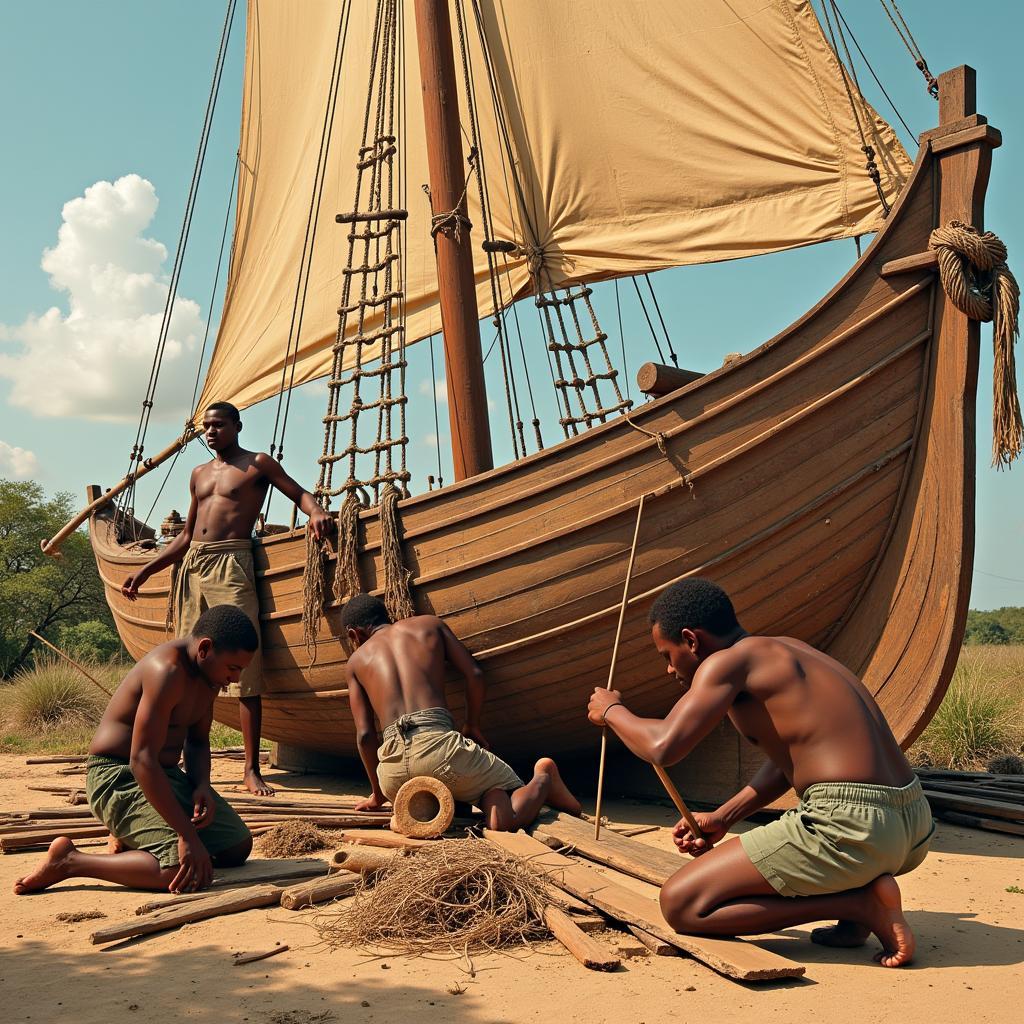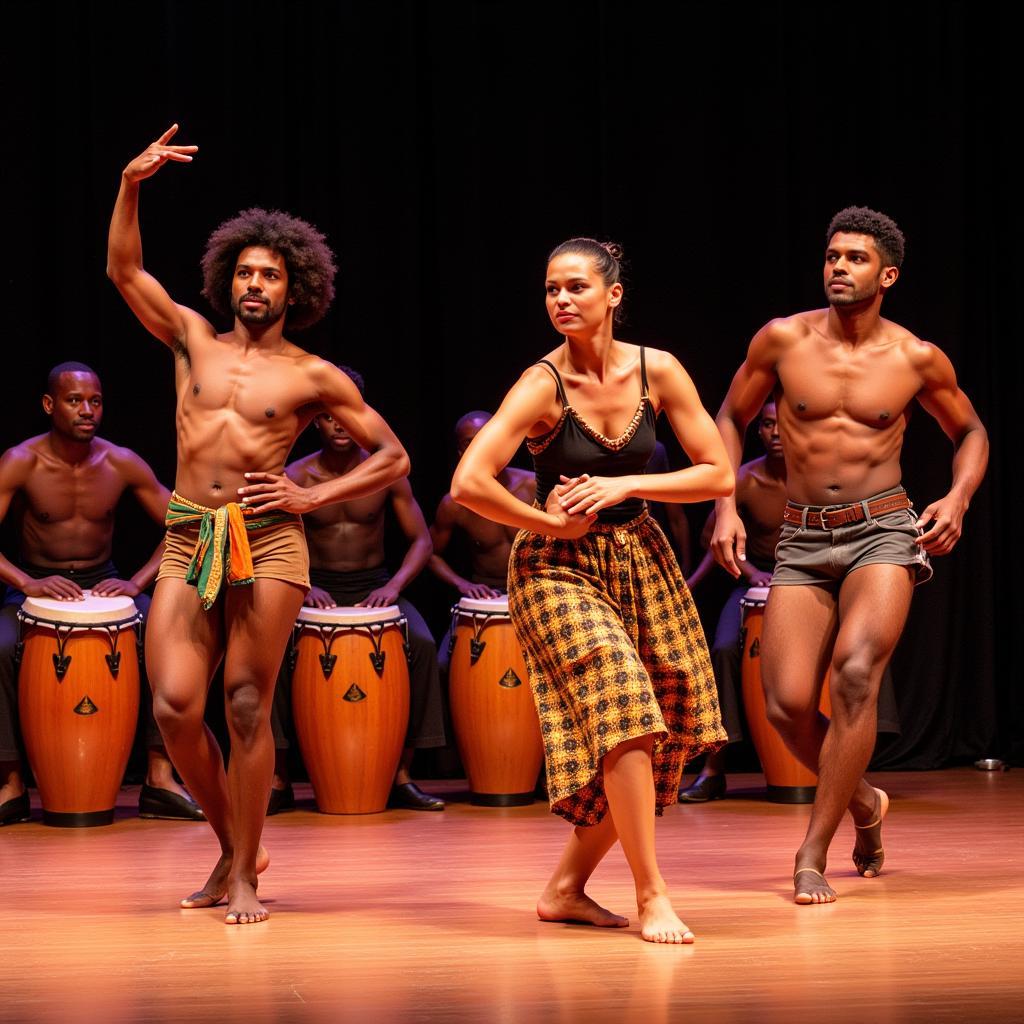African Dance and Nudity: Exploring Cultural Context
The intersection of African dance and nudity often sparks curiosity and debate. While it’s essential to acknowledge that Africa is a vast continent with diverse cultures, some traditional dances incorporate elements of nudity or semi-nudity. Understanding this aspect requires delving into the historical, spiritual, and societal contexts that shape these practices.
 African Tribal Dance Ceremony
African Tribal Dance Ceremony
It’s crucial to approach this topic with sensitivity and avoid imposing Western perspectives on cultural practices that differ significantly from our own. Generalizations should be avoided, as the relationship between dance and nudity varies greatly across African cultures. In some communities, it might be entirely absent, while in others, it plays a significant role.
 African Dancer in Traditional Attire
African Dancer in Traditional Attire
For example, in some cultures, dances involving nudity are performed during specific rituals or ceremonies, often linked to fertility, rites of passage, or ancestral worship. The body, in its natural form, can hold deep spiritual significance in these contexts, representing a connection to the earth, ancestors, or deities. The act of baring one’s body can be seen as a form of vulnerability and surrender, signifying a willingness to connect with the divine or ancestral forces.
Furthermore, it’s essential to differentiate between nudity as a form of artistic expression and nudity that is sexualized. In many traditional African dances, the focus is on the movements, rhythms, and symbolism, with nudity serving a specific cultural or spiritual purpose rather than aiming to elicit sexual arousal.
However, it’s also important to acknowledge that the influence of colonialism, globalization, and modernization has impacted traditional practices. In some cases, the meaning and context of dances involving nudity might have shifted or been misinterpreted.
Therefore, approaching this topic requires careful consideration of historical context, cultural sensitivities, and the evolution of traditions over time. It’s crucial to engage with diverse voices from within African communities to gain a nuanced understanding of these practices and appreciate their cultural significance.




